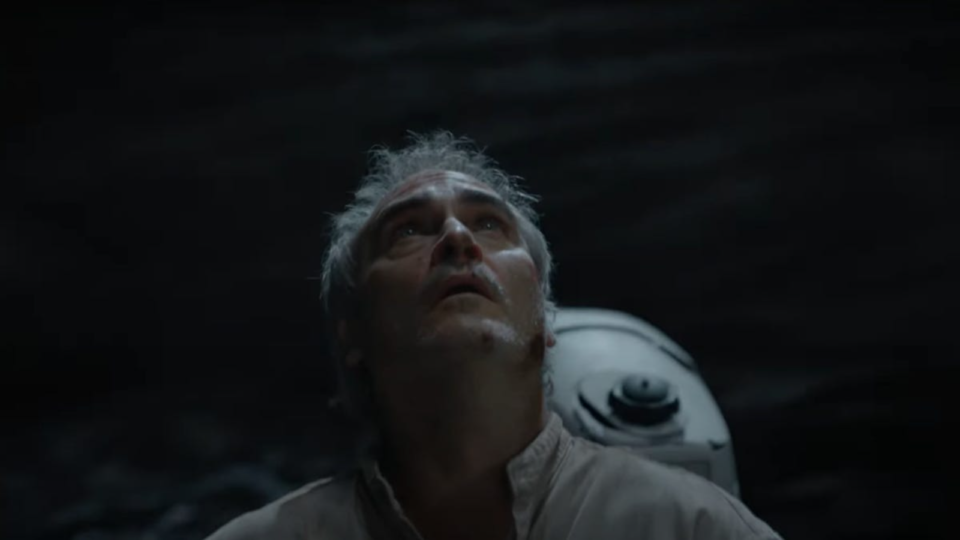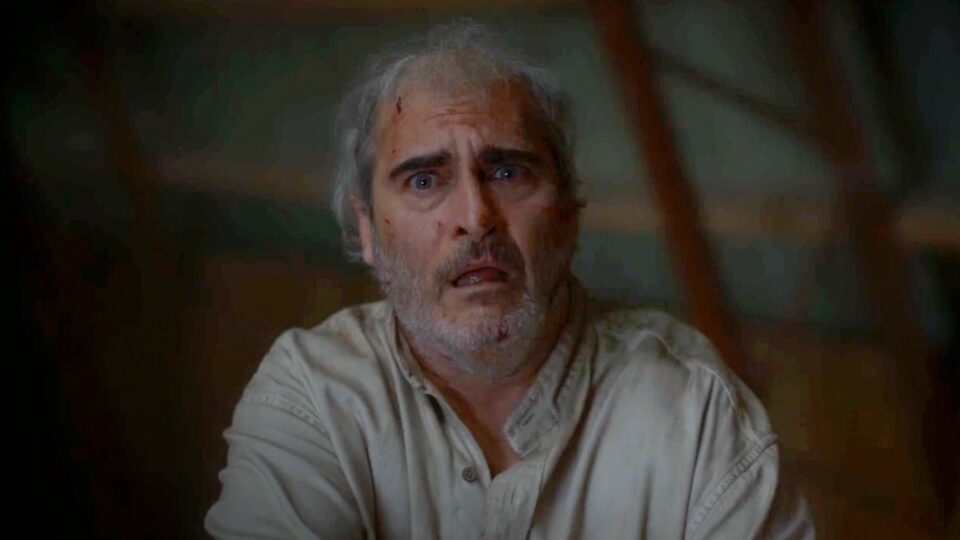‘Beau is Afraid’ is Ari Aster’s Most Disturbing Film—Here’s Why

Note: This post contains spoilers for Beau Is Afraid.
With Beau is Afraid, director Ari Aster and Oscar-winning actor Joaquin Phoenix have combined their talents, phobias, and anxieties to create a deeply disturbed, often hilarious look at a damaged man who’s afraid of, well, everything. Add A24 into the mix—the indie entertainment company with more hipster brand recognition than any of the majors—and suddenly, Aster’s deeply personal film odyssey has a lot of marketing weight behind it. There’s a great deal of awareness surrounding the new film that’s sparking curiosity. But audiences may actually be afraid to commit to a story replete with so much neurosis and chaotic energy, regardless of how darkly beautiful it may appear.
With Hereditary and Midsommar, demonic possessions and psychedelic paganism took center stage, giving genre fans something a little more concrete to sink their teeth into. Both films are distinct and visionary in their own ways, but they stand on solid, mostly recognizable ground. Then, the horror elements weave their way in to deliver scares that still feel somewhat familiar. Beau is Afraid doesn’t really fit into one particular category, making it feel unpredictably queasy and bewildering. That’s the cracked foundation that the character of Beau Wasserman is standing on, and the viewer has no choice but to live vicariously through someone who acts like a receptor for all things horrible.
Also Read: ‘Beau Is Afraid’ Runs On Pepto Bismol: A Conversation With Ari Aster and Joaquin Phoenix
Hereditary and Midsommar have much scarier scenes than any one moment in Beau is Afraid. As a whole, however, Aster’s latest is the most disturbing thing he’s ever made, largely because this is his most immersive and personal film to date. If Hereditary is about the pain a family can inflict on each other and Midsommar is a breakup movie disguised as folk horror, Beau is Afraid is about those unspeakable, deep-seated fears that end up bubbling up to the surface. If your deepest, darkest fears came true and were then reflected back to you in the real world, there is no respite or escape. That’s how Beau feels each day, every day, from the womb to the tomb.

Essentially, Beau is trying to combat all that misery in order to get back to his mother, Mona Wasserman (played by Zoe Lister-Jones in flashback and Patti Lupone in the present day) to feel the same tranquility he felt before he came into the world. From the opening shot where Beau is born, his life has been one, giant failed experiment. Fast forward to adult life, and Beau’s therapist prescribes a new experimental drug that may help to quell his endless internal suffering. In the false comfort of his therapist’s office, Beau just seems like a paranoid loser who may or may not want to kill his Mom. Then, the outside world comes crashing in and, suddenly, Beau seems like the only sane person on the planet.
Also Read: ‘Beau Is Afraid’ Is Ari Aster At His Funniest And Most Neurotic [Review]
Society is literally crumbling at the start of Beau is Afraid. In the fictional city of Corrina, law and order is a distant memory and everything is in a state of cultural decay. Drug addicts litter the sidewalks, pornography has become the only art form, and murderous loons are roaming the streets. The worst realities of apartment living become a literal hellscape, and Beau is constantly under attack even when the front door is locked. This first act is arguably the most terrifying. There is no hope, no journey ahead yet, and no possibility for escape. Then, Mom calls.

If the horrors in Corrina continued to devolve into total destruction, that would already be a frightening film unto itself. By definition, the city can be a dangerous place. With Corrina, Aster invents a dense, disgusting version of the most horrifying neighborhood imaginable. Once Beau is struck by a van and transported to the suburbs, things seem a little better at first, if not undeniably weird. Two fears are tapped into during this second act. First, Beau is injured and forced to remain under the care of a suspiciously kind couple, Grace (Amy Ryan) and Roger (Nathan Lane) who have basically taken away any autonomy he has. Second, the false safety of suburban life is quickly shattered when Beau learns that the entire family, including Grace and Roger’s daughter Penelope (Haley Squires) are heavily medicated and borderline psychotic.
Also Read: Annie Graham Is A Good Mother In Ari Aster’s HEREDITARY
To make things worse, a rage-fueled war veteran named Jeeves (Denis Menochet) lives on the property and all he seems to want to do is harm Beau. At about the halfway point through Beau is Afraid, our main character has not had one moment of peace. He is under a constant deluge and the more he ventures out, the more his internal struggle manifests in the world around him. That brand of terror is more terrifying than the demon King Paimon in Hereditary or the sacrificial cult in Midsommar ever was. Nowhere is safe, not even the suburbs, a reminder of the boogeyman set loose on Haddonfield in John Carpenter’s Halloween.
Instead of Michael Myers, the maniacal, militant guard dog Jeeves is set loose on Beau after he escapes his captors, which leads into the third act of Beau is Afraid. Deep in the woods, Beau discovers a group of nomadic thespians putting on a production that dovetails into a hypnotic animated sequence. A heroic depiction of Beau’s life is told by an enigmatic storyteller. It’s a tragic tale but an adventurous one where this iteration of Beau travels great distances to find his sons who were washed away in a terrible flood. The story folds in on itself and the real Beau is painfully reminded that his own reality can never truly be changed.
Also Read: ‘Midsommar’s Ending and the Cathartic Fires of Freedom [Matriarchy Rising]
In the final act, when Beau finally reunites with his mother, the childhood trauma he suffered rears its ugly head in a truly monstrous form. Hidden in the attic (an always popular horror setting), Beau finds a gargantuan penis creature that’s both hilarious and deeply, profoundly upsetting simultaneously. Beau screams in terror just as Jeeves smashes his way in and stabs the creature in his bulging, elephantine testicles. (WHAT IS HAPPENING!)
This scene is a culmination of everything Aster is trying to say with Beau is Afraid. Our repressed fears and failure to confront our own demons will eventually find a way to reveal themselves. When they do, it can take the form of something positively absurd or darkly horrific. Or, with Beau is Afraid, they can be both at once. And really, what’s more horrifying than that?
Categorized: Editorials News
